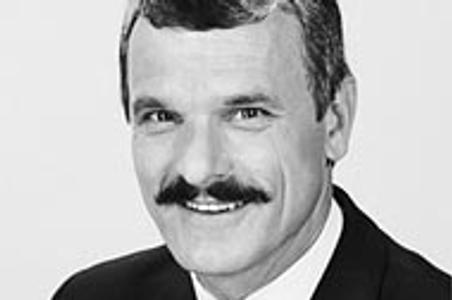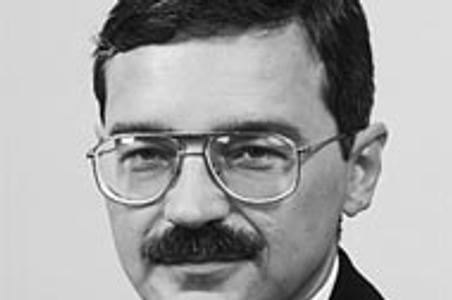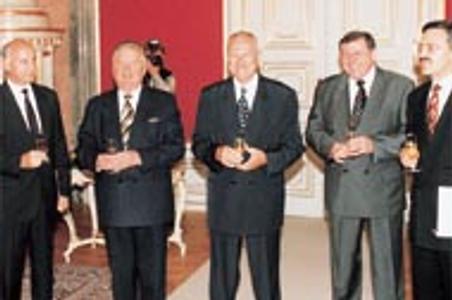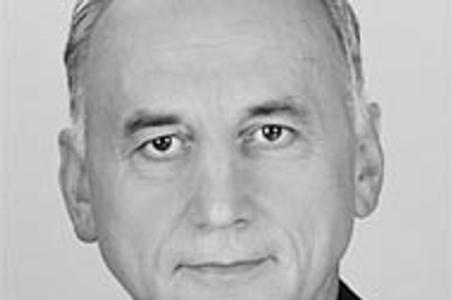Archive of articles - September 1996, page 4
If you desire to read an old article, use the search bar or select the publication date.
Representative-offices wait their turn for NBS license
Since the 1989 Velvet Revolution and later after the split of Czechoslovakia, many foreign banks sought to enter the financial market in Slovakia. They could set up a representative-office (rep-office) and then wait to receive a banking license from the National Bank of Slovakia (NBS). Or they could set up a joint venture with locally-owned commercial banks in Slovakia and try to channel foreign capital to Slovakia that way. The path most foreign banks have taken is to set up a rep-office. There are thirteen foreign banks that have set up this way in Slovakia and are waiting for a license to be a universal bank.
Interior Minister Gustáv Krajči
Of the three new ministers, Gustáv Krajči, 45, taking over for the controversial Minister of the Interior Ľudovít Hudek, is the biggest unknown. His administrative experience has taken him as far as director of the regional office for Spišská Nová Ves; his political experience has landed him the post of secretary for Prime Minister Vladimír Mečiar's Movement for a Democratic Society (HZDS) in Bratislava. By profession, he is an educator, and unlike the outgoing minister Hudek - a lawyer who worked for the National Security Corps and was Attorney General - he has had no direct exposure to the Ministry of the Interior or the police. In his new post, Krajči's main task will be to reorganize the police force; he and Mečiar have already announced that a new police chief will be named and that staff shakeups are expected.
Foreign Minister Pavol Hamžík
If Prime Minister Vladimír Mečiar is trying to boost relations with the EU by appointing Slovak Ambassador to Germany Pavol Hamžík as Minister of Foreign Affairs, he could be on the right track. Hamžík, 42, has already met with his German counterpart and is actively working on a long-desired meeting between Mečiar and German Chancellor Helmut Kohl. Unlike former Minister Juraj Schenk, whom many in the diplomatic corps criticized for his lack of foreign policy experience, Hamžík seems almost groomed for the position. After all, the Trenčín-born lawyer (he graduated from Comenius University in 1978) has worked in the diplomatic service for 12 years. After six years as counsel for the Ústav Mechanizácie Odevnej Výroby (Institute of Mechanization of the Textile Industry) in Trenčín, Hamžík switched over to the Federal Ministry of Foreign Affairs in Prague in 1984.
VSŽ wants majority ownership of IRB
Indications have surfaced that VSŽ Košice, the giant East Slovak Iron works, has acquired 43.7 percent of the Bank for Investment and Development (IRB) and thus has gained a controlling share in the bank. Though the allegations have yet to be proven, a source close to IRB's management said that VSŽ, operating through a few of its web of daughter companies, has successfully purchased the shares. If true, VSŽ's buy would run against a Slovak banking law stating that any company owning more than 15 percent of a bank must receive permission from the National Bank of Slovakia (NBS). VSŽ officials did ask the NBS for permission last month, yet after the alleged acquisitions.
Academics unhappy with proposed university law
The highest-ranking representatives of every Slovak university except one, many of them clothed in robes denoting their rank, converged in the ceremonial hall of Bratislava's Comenius University on September 6 on a mission against the government's draft law on universities. Their message was this: "We in the academic community reject attempts to limit ... rights and freedoms in academic life." With that salvo, school administrators heading back to school this month - and politicians to parliament - are locked in a head-to-head battle over the government's proposed law on universities. While the Education Ministry says the bill was largely adapted from university administrators' own draft and is liberal by international standards, the academic community is framing the bill as a governmental attempt for control over the country's higher education community, lumping it with last year's controversial law on foundations that is vehemently opposed by the non-profit sector.
Pizza Hut to open next to Hotel Forum
Beginning this winter - maybe even by year's end - Pizza Hut will be serving panned pies in a new restaurant beside Bratislava's Hotel Forum, according to an Austrian businessman who has gained the rights to the franchise. Former investment banker Richard Lanczmann, 35, is combining with his Vienna-based employer, The Liška Group, to open Slovakia's first Pizza Hut at Drevená 8. Liška, a fur and jewellery company with two dozen shops across Slovakia and the Czech Republic, owns the property; Lanczmann is the chief executive of Restaurant Management Service s.r.o., which will operate the franchise. Lanczmann declined to say how much was being invested in the new restaurant, but Andy Rafalat, the Warsaw-based general manager of franchising for Pepsico Restaurants Central Europe, gave a clue.
Investors see death of collective investment
Back in 1993, Zuzana Bartová and her husband Jaroslav, both retired, decided to invest their life savings of 180,000 Sk into the Všeobecný Investičný Fond (VIF), a mutual fund managed by the First Slovak Investment Fund (PSIS). In early 1995, the Bartos were looking forward to collecting their money, which had grown to 270,000 Sk. They wanted to help their children buy apartments. However, they could not collect. Deputy Finance Minister Jozef Magula decided in early March 1995 that PSIS had acted illegally and banned its activity.
VÚB ends with disappointing first half
There was a decline in trading at the end of August and the beginning of September, resulting in lower volumes and increased price fluctuation on the Slovak capital market. VÚB Kupón, VÚB, VSŽ, Biotika, Nafta and investment funds dominated the BCPB (stock exchange) floor and OTC trades. We noticed that the strong interest in VÚB shares that fuelled the market has settled down, probably due to the disappointing news that VÚB lost 752m Sk in 1H96. The results contain some abnormal factors such as the allocation of advance income tax payments worth 530.6m Sk as costs, and the decision to include part of the interest revenue in the income statement on an annual basis.
A new way: Investment firms entice public as joint stock companies
The tug-of-war between the Ministry of Finance and investment funds like PSIS's Sporofond has evoked suspicion among small investors towards collective investment, with the result being that many are drawing their money out of funds and "pouring them back into banks," said Rudolf Lachkovič, president of the Association of Investment Managers and Companies in Slovakia.Fearing this development, many investment companies and funds have been transforming themselves into joint-stock companies within the last year. By doing so, they are able to offer essentially the same services to investors as investment companies, while unleashed from present legislation and state supervision.
Guessing follows ministers' ouster
Prime Minister Vladimír Mečiar's August 27 announcement of the resignation of three senior members of his Cabinet was surprising for both its swiftness and the widespread doubt over why the three were dismissed. Mečiar announced at the government's regular press conference that the three departing Cabinet officials were Foreign Minister Juraj Schenk, Economics Minister Ján Ducký and Interior Minister Ľudovít Hudek. The latter two are members of Mečiar's Movement for a Democratic Slovakia (HZDS), while Schenk was nominated to his post by the same party. Their replacements are Foreign Minister Pavol Hamžík, Economics Minister Karol Česnek and Interior Minister Gustáv Krajči.
Economic Minister Karol Česnek
Energy progress has been a central theme for the Ministry of the Economy. Development of the nuclear power plant at Mochovce, in particular, was the biggest government project last year. With Karol Česnek, the former director of Slovenské Elektrárne, the Slovak power company, taking over the helm at the ministry, energy is likely to play an even bigger role. "The most important thing is the fast and successful transformation of the Slovak economy," Česnek told the press upon being named to the post. "I will also pay great attention to completing the construction of Mochovce."
- Top 10 events in Bratislava for foreigners
- Slovakia loses another EV model to Spain as Stellantis chooses Zaragoza over Trnava
- Weekend: Celebration of fun comes to Malacky Photo
- News digest: Prosecutor seeks jail for NBS Governor Kažimír as his political support wanes
- No more photos or bank statements? Slovakia moves to ease residence process
- Slovak female triathlete shatters barriers with historic win at Himalayan event
- Convicted of multiple murders, Slovakia’s mafia boss seeks release from prison
- 3 free things to do in Bratislava in the next seven days
- Weekend: Celebration of fun comes to Malacky Photo
- No more photos or bank statements? Slovakia moves to ease residence process
- Top 10 events in Bratislava for foreigners
- Slovakia loses another EV model to Spain as Stellantis chooses Zaragoza over Trnava
- News digest: Fico’s bloc wants to save money by restricting electoral access
- Convicted of multiple murders, Slovakia’s mafia boss seeks release from prison
- Maria Theresa on the banks of Bratislava
- News digest: Prosecutor seeks jail for NBS Governor Kažimír as his political support wanes
- Maria Theresa on the banks of Bratislava
- No more photos or bank statements? Slovakia moves to ease residence process
- 3 free things to do in Bratislava in the next seven days
- Weekend: Celebration of fun comes to Malacky Photo
- Top 10 events in Bratislava for foreigners
- Digital Jarvis is real now. He is coming for your to-do list
- News digest: Violent gang in Bratislava is under arrest
- The Kremlin’s security agency has a Russian contractor in Slovakia - no one has noticed
- Maria Theresa on the banks of Bratislava
- No more photos or bank statements? Slovakia moves to ease residence process
- A mayor resigns over €2.7 million fraud scandal at town hall
- He designed Gatwick. But this is his masterpiece
- Fico praises China and Vietnam as models, says liberal democracy has failed
- News digest: Violent gang in Bratislava is under arrest
- The compass points to Kúty, and people are starting to follow
- The Kremlin’s security agency has a Russian contractor in Slovakia - no one has noticed
- News digest: Prosecutor seeks jail for NBS Governor Kažimír as his political support wanes
- Slovakia loses another EV model to Spain as Stellantis chooses Zaragoza over Trnava
- Slovak female triathlete shatters barriers with historic win at Himalayan event
- Weekend: Celebration of fun comes to Malacky Photo
- News digest: Fico’s bloc wants to save money by restricting electoral access
- Slovakia plans to restrict access to new medicines amid funding shortfall
- No more photos or bank statements? Slovakia moves to ease residence process
- Top 10 events in Bratislava for foreigners More articles ›






